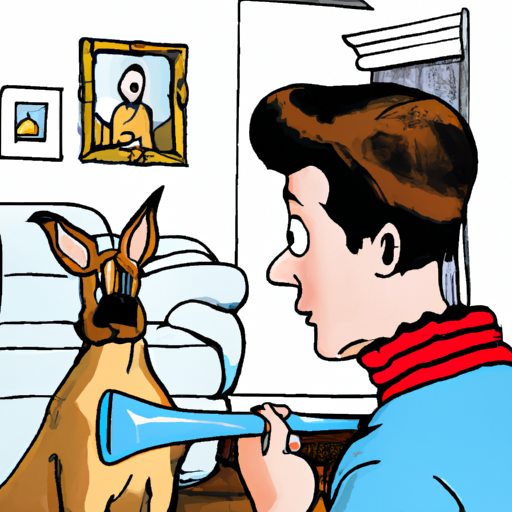Being a caregiver for a canine companion means ensuring their wellbeing in all aspects, including their auditory health. Here’s a comprehensive guide on how to tap into your detective instincts and test your dog’s hearing at home.
1. Understanding Canine Hearing
Dogs, your faithful companions, have an extraordinary sense of hearing. They can hear frequencies ranging from 40 Hz to 60,000 Hz, while humans are limited to 20 Hz to 20,000 Hz. This incredible range allows dogs to pick up sounds we cannot perceive.
Understanding this is crucial when you suspect your pet might have a hearing issue. Symptoms could range from not responding to their name, to being startled when touched from behind, or showing difficulty finding where a sound is coming from.
2. Preparing the Test Environment
Before conducting any tests, it’s important to create a suitable environment. Here are some steps to follow:
- Choose a quiet room, free of distractions.
- Remove any other pets or people that might distract your dog during the test.
- Have their favourite treats or toys on hand to reward them for their cooperation.
3. Conducting the Hearing Test
The simplest way to test your dog’s hearing is by making a sound and observing their reaction.
- Stand behind your dog, out of their sight.
- Make a sound – clap your hands, whistle or use a dog squeaky toy.
- Observe their reaction. A dog with normal hearing will turn their head or ears towards the sound.
Remember, this test is not foolproof. A dog might simply be reacting to the sensation of air movement or vibrations.
4. Professional Testing Methods
If you suspect your dog might have a hearing problem, it’s always best to consult with a veterinarian. They can conduct a Brainstem Auditory Evoked Response (BAER) test, which measures electrical activity in the brain in response to sound. This is the most accurate method to test for hearing loss in dogs.
| Test Method | Accuracy | Cost |
|---|---|---|
| Home Test | Low | Free |
| BAER Test | High | Can be expensive |
5. What to Do if Your Dog Has Hearing Loss
If your dog has hearing loss, it’s not the end of the world. Dogs are remarkably adaptable and can live full, happy lives even with hearing loss. You can:
- Use hand signals for commands instead of verbal ones.
- Get a vibrating collar to get their attention.
- Always keep them on a leash when outside to prevent them from wandering off.
FAQ
Q: Can dogs lose their hearing as they age?
A: Yes, just like humans, dogs can develop age-related hearing loss.
Q: Can loud noises damage my dog’s hearing?
A: Yes, prolonged exposure to loud noises can lead to hearing loss in dogs.
Q: Can a dog’s hearing be restored?
A: It depends on the cause of the hearing loss. If it’s due to an infection or blockage, it can often be treated. However, age-related hearing loss is usually permanent.
Remember, as a caregiver, your role is to provide the best possible care for your canine companion. Regularly checking their hearing is a crucial part of this responsibility.



